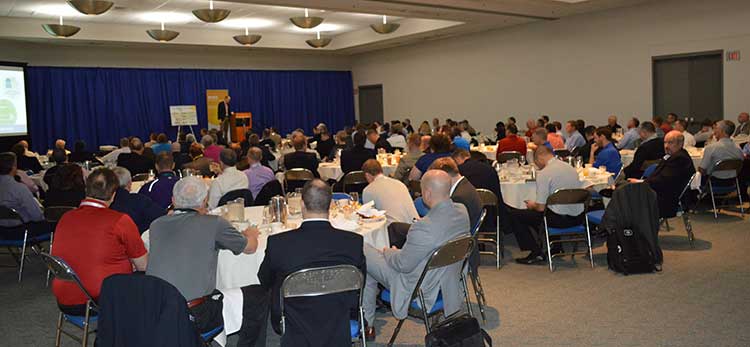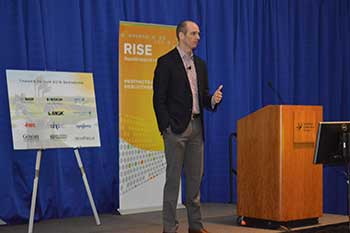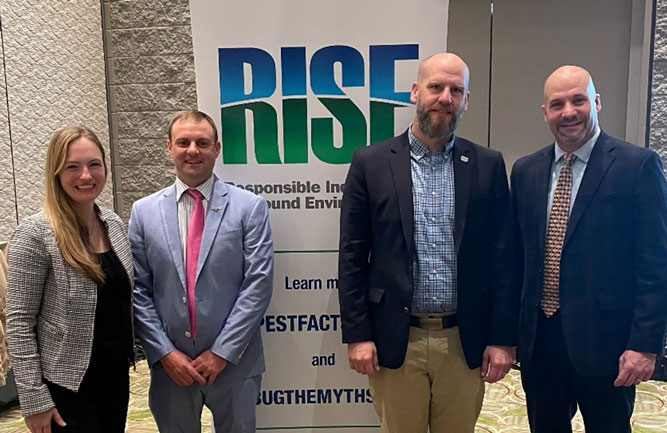The defense never rests: RISE president speaks at GIS
RISE president Aaron Hobbs underlines to supers at GIS the importance of unity in preventing local threats from ballooning into national losses.

Aaron Hobbs, president of RISE (Responsible Industry for a Sound Environment), outlines recent legislative and regulatory threats and wins, as well as longstanding and emerging obstacles and opportunities.
“Industry unity is key — especially with our diverse membership and ever-escalating local, regional and national battles,” says RISE President Aaron Hobbs, speaking to a packed room of RISE members and supers today at GIS. “Our job is not done at RISE until every single member and customer is protected.”
Case in Point

“Industry unity is key — especially with our diverse membership and ever-escalating local, regional and national battles,” Hobbs told the packed room of RISE members and superintendents attending today’s breakfast meeting. “Our job is not done at RISE until every single member and customer is protected.”
Hobbs discussed how the Pesticide Education and Control Amendment of 2012 — proposed by Washington, D.C., city council member Mary Cheh — was defeated two times by RISE but eventually passed after its third introduction. Then, the negative ballooning effect took hold, and what was a two-time local win became losses in several localities, eventually making creating a national issue.
“Any issue at a local level has the potential to really balloon,” Hobbs warned.
Hobbs said the top advocacy priorities for RISE (Responsible Industry for a Sound Environment) for 2016 are:
- Endangered Species Act;
- Clean Water Act;
- Pollinators (related concerns potentially triggering increased herbicide and insecticide bans and restrictions); and
- General bans and restrictions on insecticides, herbicides, fungicides, fertilizers and other specialty chemical products
- professionals need to do their jobs effectively.
Community-Building Tips
Hobbs shared six keys to improving community relations and grassroots efforts:
- Knowing we can’t win them all.
- Knowing we are the experts.
- Knowing we must make it personal.
- Knowing we must not be too technical: “If we mention ‘MSDS,’ we may have lost them already.”
- Knowing we must never forget we’re the professionals.
- And, last but not least, knowing when to walk away (aka The Kenny Rogers Rule).
“Nos. 1 and 6 are really tough sometimes, but they’re critical,” Hobbs said. “As an industry, we need to accept that a minuscule minority may never see the value in our professional people and proven, tested products. … But no matter what they say or do, we always have to be professional, and say and do the next right thing.”
Photos: Golfdom









